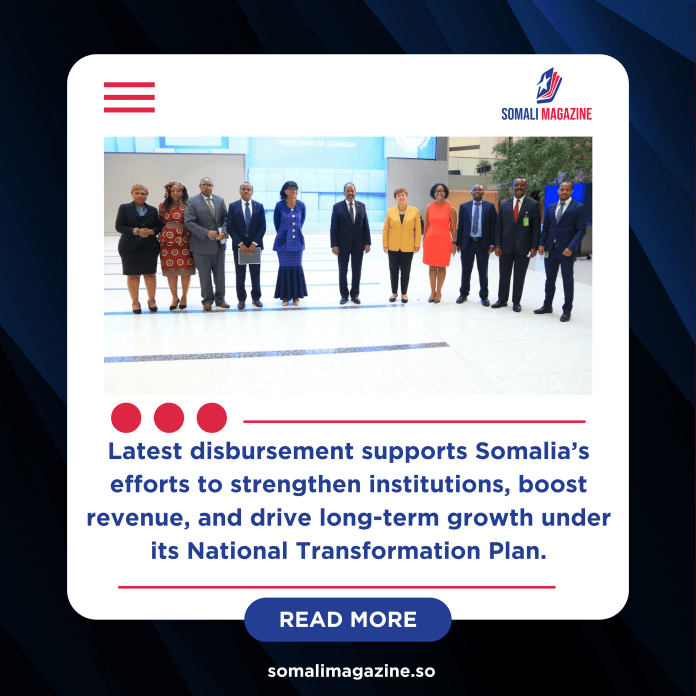Facebook Twitter (X) Instagram Somali Magazine - People's Magazine
The International Monetary Fund (IMF) has approved a $10 million disbursement to Somalia as part of the country’s ongoing economic reform program. This follows the IMF’s completion of the third review of Somalia’s progress under its Extended Credit Facility (ECF) arrangement.
This latest release brings Somalia’s total funding from the IMF under the current agreement to around $70 million since the program began in December 2023. The money will help Somalia continue rebuilding its economy, strengthening government institutions, and maintaining overall economic stability. These goals are part of the country’s broader plans laid out in the National Transformation Plan and Vision 2060.
A Difficult Economic Outlook
Even with recent progress, Somalia still faces a tough economic path ahead. The IMF expects the country’s economic growth to slow to 3% in 2025, compared to an estimated 4% in 2024. This slowdown is due to several challenges, including reduced foreign aid, unpredictable weather, and global economic uncertainties.
Despite these setbacks, the IMF praised Somalia for staying committed to reforms. Nigel Clarke, IMF Deputy Managing Director and Chair, acknowledged the efforts of Somali leaders, saying, “The Somali authorities have maintained reform momentum with strong performance under their Fund-supported program.”
He added that the new National Transformation Plan is a step in the right direction. The plan aims to strengthen the economy, reduce poverty, and ensure that growth reaches all parts of society.
Reforms in Progress
To keep the reform process moving, the IMF urged Somalia to do more to improve how it raises and manages money. This includes collecting more domestic revenue and modernizing the country’s customs and tax systems. It also stressed the importance of managing government spending responsibly.
The IMF highlighted a few key actions that need to be taken:
-
Implement the new Income Tax Law
-
Roll out the Pay and Grade reform to improve how government workers are paid
-
Establish a pension system for civil servants
These changes will help Somalia become more financially self-reliant and reduce its dependence on foreign aid.
Strengthening Institutions
The IMF also noted progress in building stronger financial institutions. For example, Somalia has been working to boost the capacity of its Central Bank and promote access to banking and financial services for more citizens. The government is also taking steps to reintroduce the Somali Shilling under a carefully managed currency system.
Another major step forward is Somalia’s adoption of a new legal framework for its petroleum sector. The IMF called this a significant achievement and advised Somali authorities to ensure that the new laws are applied fairly and transparently. Doing so, they said, could attract more investment and improve trust in government.
Continued Donor Support Is Critical
Despite all these efforts, the IMF warned that Somalia still needs strong international support. Foreign aid plays a big role in keeping the country’s reform plans on track. Without it, progress could stall or even reverse, especially as Somalia continues to face major economic and social pressures.
In summary, Somalia has made meaningful progress on its reform journey, and the IMF is showing confidence in its direction by providing another $10 million. But the country still has a long way to go, and success will depend on both continued internal reform and sustained international support.

